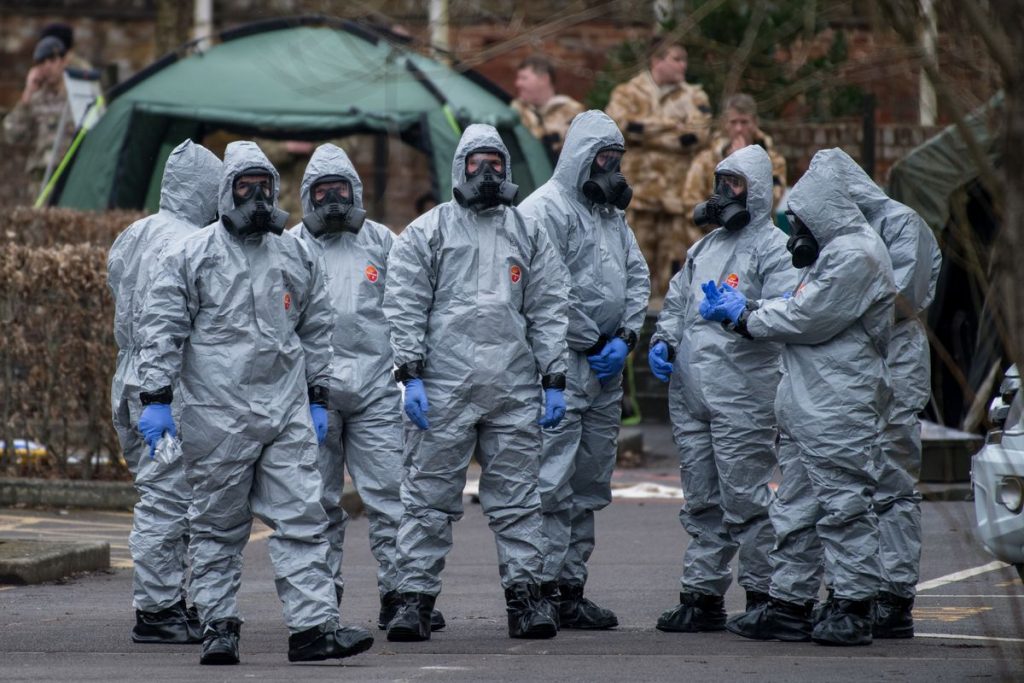
While a lot of the details surrounding the attempted murder of a former Russian spy and his daughter in the UK remain unclear, officials have identified the substance that was used in the attack. It’s called Novichok, and it could be the deadliest agent ever used to neutralize a target to date. There’s also very little information about Novichok and its effects, mainly because it’s existence has remained a closely-guarded secret.
From what we do know, it was created during the height of the Cold War, and it represented the latest-generation of nerve agents at the time. Its toxicity is reported to be at least 5 times stronger than VX, which has been considered to be the most-lethal agent in US and Soviet stockpiles up until now. The Russians failed to declare the existence of Novichok during negotiations to dismantle chemical weapons facilities and reduce stockpiles in the years following the end of the Cold War as well. It wasn’t until the 1990s when a scientist revealed its existence to the public, and the attack in the UK is thought to be the first time the agent was used in the field.
Versatile and Difficult to Detect
Novichok can be stored and deployed in solid, powder or liquid form. Ingredients can also be stored and transported separately, and this makes it virtually-impossible to detect. By all accounts, it’s easy to combine the ingredients at the last minute before an attack is carried out. Consequently, this agent has the potential to do a lot of damage before officials it can be properly identified and contained.
Traces of Novichok related to the attack have been found in hundreds of locations, and scores of people are thought to have been exposed. Fortunately, it doesn’t appear that those who have come in contact with the agent have become ill, but it’s too early to tell. Unfortunately, this is par for the course when dealing with a newly-discovered chemical agent, and there’s no telling what kind of impact a large-scale attack can have on people near and far from ground zero. This also makes it difficult for us to prepare and take appropriate action if we happened to be at the wrong place at the wrong time.
Effects
We do know that the effects of Novichok are similar to other nerve agents, and symptoms can develop within seconds of exposure. Profuse sweating, rapid heart rate and sudden, abrupt changes in breathing will occur along with nausea, vomiting and diarrhea. The victim will essentially lose control of their bodily functions as the agent interferes with how the nervous system communicates with, well, everything. Pupils will become constricted, seizures can occur, and abrupt mood swings or varying levels of consciousness may develop as the agent attacks the brain.
This is a horrible, violent and painful way to die. For those who survive, the damage caused by the agent can produce a laundry-list of complications, impairments and chronic ailments that may never go away.
Keep in mind that Novichok is just one of dozens of agents in existence that we know little or nothing about. In fact, some argue that we are at greater risk of being attacked by an unknown agent than one that we’re somewhat prepared to deal with, and this is unnerving to say the least. However, it highlights the existential threat that a biological or chemical attack poses, and we should all take steps to be prepared as best as we know how.
